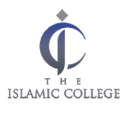MA-Equivalent Islamic Philosophy Distance Education
Exegesis and Qur’anic Sciences
In this educational Programme, the transmission of philosophical ideas from non-Islamic cultures to the Muslim centres of learning and the impact of Islamic thought and Muslim philosophers on the subsequent development of philosophy on a global scale will be studied. The why and how of the development of Greek philosophical concepts and categories in the context of Islamic philosophy and the novel ideas, terminologies and arguments introduced by Muslim philosophers and their contributions to the enrichment and enhancement of the discipline of philosophy are among the topics critically examined in this Programme. The students will study three major schools of Islamic philosophy, namely, Peripatetic (Ibn Sina), Illumiasionist (Suhrawardi), and Transcendent (Mulla Sadra) Schools. The texts used in this Programme are the primary sources of the above Schools.
The Programme is unique in that it is taught by distinguished lecturers who have studied Islamic philosophy in its birthplace. They are fluent in English as well as the languages of the original texts (Arabic and Persian). While the Programme mainly focuses on the themes from the tradition of Islamic philosophy, a critical comparative study of some of the epistemic and moral views of Muslim philosophers with the views of a number of prominent Western philosophers is also included in it.
Equivalent Programmes are designed to provide all those who are interested in acquiring in-depth knowledge about the most important aspects of Islamic Philosophy, regardless of their previous academic background. Students who successfully complete the Islamic College’s equivalent Programmes can apply for higher degrees at other universities.
- Overview
- Structure
- Learning
- Support
- Admission
Subject Specific Intellectual
Upon successful completion of this Programme, the students are expected to have acquired:
- Advanced knowledge of major figures and movements in the history of Islamic philosophy; knowledge of core topics, theories, and debates in epistemology and metaphysics, as well as logic and ethics.
- An in-depth advanced knowledge of main controversies and sophisticated arguments in Islamic philosophy.
- Understanding outlines of contemporary philosophical terrain, including the traditional sub-disciplines or branches of philosophy and key philosophical concepts and terms from philosophical arguments or theories.
- A thorough understanding of the strengths and weaknesses of opposing viewpoints, as well as the ability to formulate the strongest arguments to support those viewpoints.
- Knowledge of the formal techniques of evaluating arguments and deductive systems.
Students will have:
- An advanced use of libraries and other learning resources effectively and systematically
- The ability to communicate philosophical ideas in writing, debate and oral or visual presentations, with clarity, precision, and incisiveness, in expository, narrative, analytical, and argumentative modes.
- The ability to summarise key points from presented material.
- The ability to read philosophy independently from original resources.
- The ability to articulate and evaluate the specific themes underlying a more general question.
Modules (Compulsory & Designated)
The Programme is offered as a three-semester (full-time) or six-semester (part-time). Each academic year includes two semesters, each 12 learning weeks long (excluding holidays)
There will be a possibility of offering a third semester in summer based on the students’ requests.
Credit
Each 20-credit module consists of 30 hours of class contact and 120 hours of private work, totalling 150 hours of academic work, per semester.
Each 15-credit module consists of 24 hours of class contact and 90 hours of private work, totalling 114 hours of academic work, per semester.
Each 10-credit module consists of 22 hours of class contact and 60 hours of private work, totalling 82 hours of academic work, per semester.
Contact hours are divided between lectures, seminars and tutorials.
Learning, teaching, and assessment methods
The students will be taught and assessed based on the following:
- Lectures and Seminars
- Tutorials
- Class Discussion and Student Presentations
- Independent Reading
- Essay Writing
- Dissertation
Students who are returning to higher education after some years, or those whose first language is not English, or need to have a background in Arabic, are especially encouraged to contact the Department for Open Courses at The Islamic College. The Islamic College provides support lessons for those who want to learn Arabic or Farsi or need to improve their academic English.
Students from different educational backgrounds are offered the opportunity to take modules from other relevant programmes of The Islamic College free of charge to assist them in their Postgraduate studies.
The College is housed in a listed building, which has been converted to a high standard to cater for the needs of students. We provide a calm and peaceful atmosphere, highly conducive to study and reflection. Our facilities:
- Common rooms
- Classrooms furnished with up-to-date pieces of educational equipment
- Library
- Computer lab providing students access to online learning resources
Digital resources and software D2L (Brightspace)
This programme was developed and is delivered and assessed by The Islamic College.
Course Info
Scholarship and study grants are avaliable subject to conditions, contact the College for more details.
Application for this course is online, please click here for enrolment.
psc@islamic-college.ac.uk
0044 (0) 2084519993 (Ext. 231)
Learning methods
-

Learning methods
-

Tutorials
-

Class discussion & student
-

Presentations
-

Independent Reading
-

Essay Writing
-

dissertations


